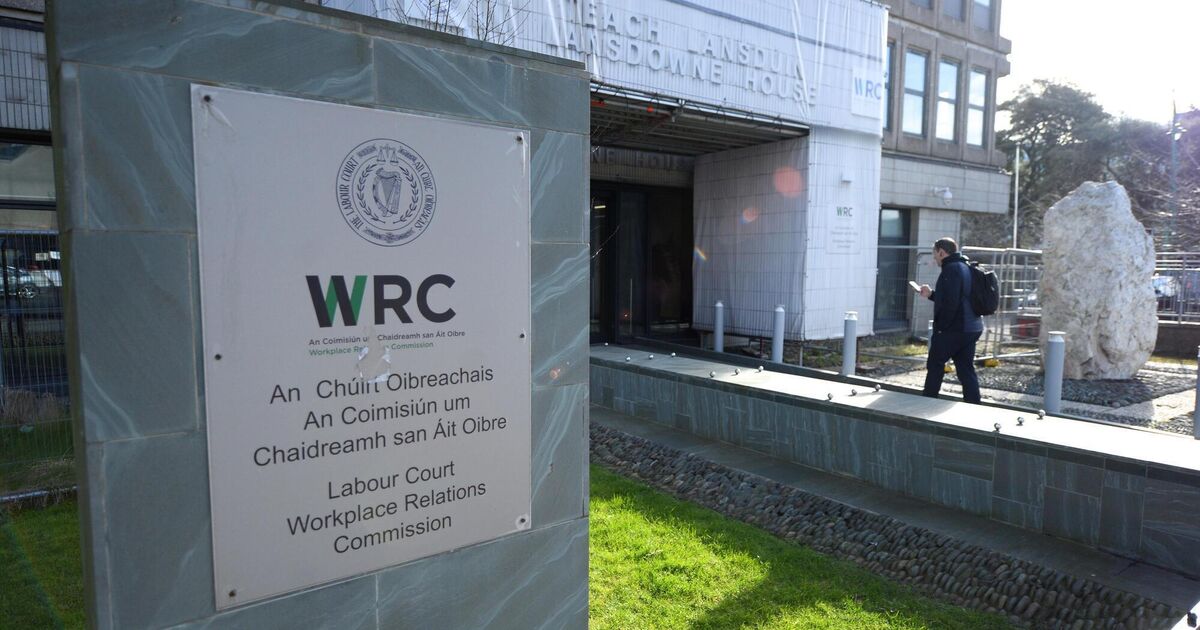An airport security official, who was demoted for kissing a female colleague at work, should be reinstated to his former position, the Workplace Relations Commission has recommended.
The worker had sought being returned to his former role as an airport search unit supervisor, as well as restitution for the financial loss and emotional distress he suffered.
The WRC heard the man was suspended in September 2023 after being informed of allegations made against him by colleagues.
He was subsequently demoted in November 2023, and issued with a final written warning to stay on his file for 18 months following an investigation, disciplinary and appeal process for two incidents which were classified by his employer as gross misconduct.
The WRC heard the incidents occurred on September 3 and 4, 2023, and involved the worker kissing a female colleague during active operational duties — once when she was operating an X-ray machine and the other in a premium services area.
The security official, who began work at the airport in June 2018, was involved in the screening of passengers and baggage using X-ray technology and subsequently in supervising such work after his promotion in July 2021.
The airport authority ruled the worker’s actions had breached its dignity and respect at work policy, its code of conduct and protocols governing safety-critical operations.
The security official, who was on an annual salary of €46,154, claimed the sanctions imposed on him were excessively harsh and his previously good employment record had not been given due consideration.
The airport authority said the sanctions reflected the safety-critical nature of the breaches, the worker’s leadership responsibilities, and the need to preserve the integrity of security operations.
It also claimed the disciplinary process was fair, transparent and consistent with internal policy, while the sanctions were proportionate.
The employer said dismissal had been an option but it opted for a combination of lesser sanctions.
It also confirmed the other worker involved in the incident had been subject to a separate disciplinary process and had received a final written warning.
None of the parties in the case was identified as the complaint was made under the Industrial Relations Act.
The complainant made admissions about both incidents and acknowledged his behaviour did not meet professional standards.
He also expressed remorse and accepted his actions represented a lapse of judgement.
The man declined several opportunities to review CCTV footage of the incidents.
WRC adjudication official Breiffni O’Neill noted the airport authority had placed particular emphasis on the safety implications of the worker’s conduct.
However, Mr O’Neill said it begged the question why he was not transferred to a less safety-sensitive role given such serious safety concerns.
He said the decision by the airport authority not to explore transferring the security official to another department as an alternative to demotion called into question the true extent of its safety concerns.
“If the supervisor role was indeed so critical from a safety perspective, one would reasonably expect that the worker would have been reassigned to a role with materially lower safety responsibilities rather than simply demoted to another safety-critical post,” said Mr O’Neill.
He claimed such inconsistency undermined the credibility of the rationale for demoting him and suggested there was a lack of proportionality in the disciplinary action taken.
Mr O’Neill said he was also satisfied the final written warning, which had now expired, served a corrective purpose and was, in itself, a proportionate sanction.
He said the additional sanction of demotion was excessive given the worker’s previously unblemished record and the failure to consider a less punitive and reasonable alternative.
Mr O’Neill recommended the security official be reinstated to his former role with full restoration of duties and remuneration within seven days.
However, the WRC made no recommendation in relation to any claim for financial loss.
Findings made under the Industrial Relations Act are in the form of recommendations and are not binding on the parties.

